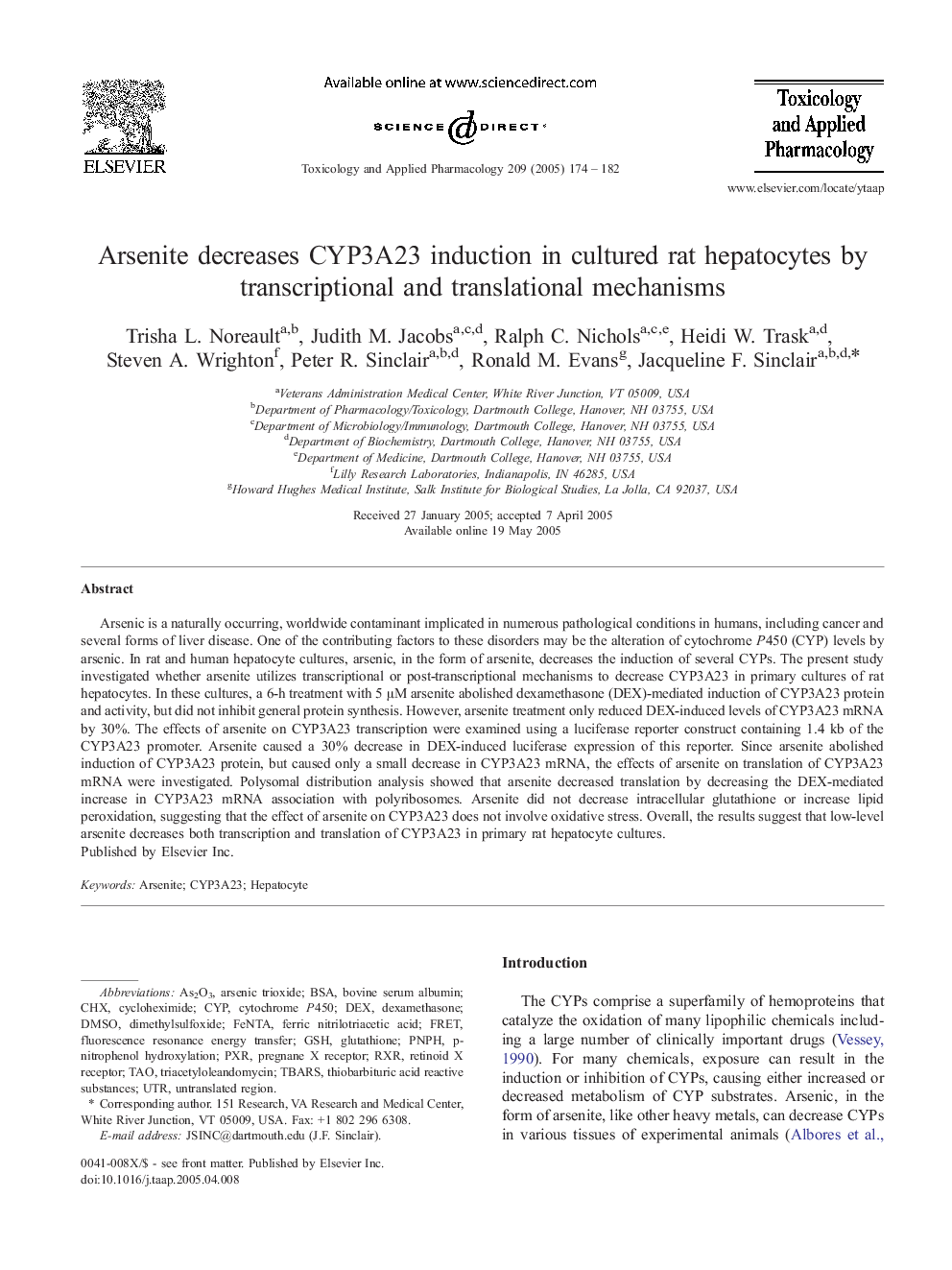| Article ID | Journal | Published Year | Pages | File Type |
|---|---|---|---|---|
| 9017921 | Toxicology and Applied Pharmacology | 2005 | 9 Pages |
Abstract
Arsenic is a naturally occurring, worldwide contaminant implicated in numerous pathological conditions in humans, including cancer and several forms of liver disease. One of the contributing factors to these disorders may be the alteration of cytochrome P450 (CYP) levels by arsenic. In rat and human hepatocyte cultures, arsenic, in the form of arsenite, decreases the induction of several CYPs. The present study investigated whether arsenite utilizes transcriptional or post-transcriptional mechanisms to decrease CYP3A23 in primary cultures of rat hepatocytes. In these cultures, a 6-h treatment with 5 μM arsenite abolished dexamethasone (DEX)-mediated induction of CYP3A23 protein and activity, but did not inhibit general protein synthesis. However, arsenite treatment only reduced DEX-induced levels of CYP3A23 mRNA by 30%. The effects of arsenite on CYP3A23 transcription were examined using a luciferase reporter construct containing 1.4 kb of the CYP3A23 promoter. Arsenite caused a 30% decrease in DEX-induced luciferase expression of this reporter. Since arsenite abolished induction of CYP3A23 protein, but caused only a small decrease in CYP3A23 mRNA, the effects of arsenite on translation of CYP3A23 mRNA were investigated. Polysomal distribution analysis showed that arsenite decreased translation by decreasing the DEX-mediated increase in CYP3A23 mRNA association with polyribosomes. Arsenite did not decrease intracellular glutathione or increase lipid peroxidation, suggesting that the effect of arsenite on CYP3A23 does not involve oxidative stress. Overall, the results suggest that low-level arsenite decreases both transcription and translation of CYP3A23 in primary rat hepatocyte cultures.
Keywords
CyPPNPHCHXAs2O3p-Nitrophenol hydroxylationTBARSGSHUTRRetinoid X receptorPXRDEXTAORXRBSADMSOarsenitearsenic trioxidebovine serum albuminFluorescence resonance energy transferFRETTriacetyloleandomycinDexamethasoneDimethylsulfoxideCytochrome P450cycloheximideFeNTAuntranslated regionthiobarbituric acid reactive substancesHepatocyteGlutathionePregnane X receptor
Related Topics
Life Sciences
Environmental Science
Health, Toxicology and Mutagenesis
Authors
Trisha L. Noreault, Judith M. Jacobs, Ralph C. Nichols, Heidi W. Trask, Steven A. Wrighton, Peter R. Sinclair, Ronald M. Evans, Jacqueline F. Sinclair,
